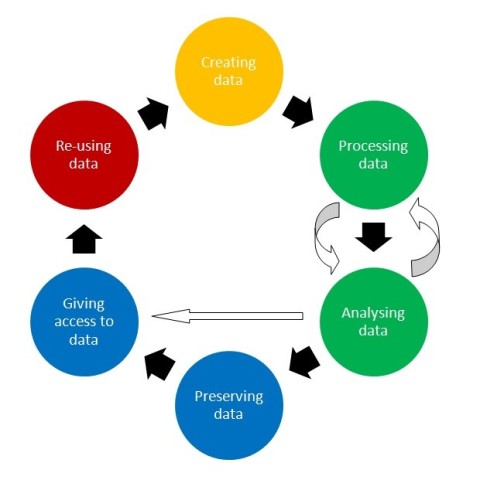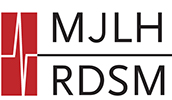Posted By Adrian Thorogood
The International Committee of Medical Journal Editors (ICMJE) recently proposed that journals should require researchers to share patient-level data from clinical trials as a condition of publication. Full disclosure of supporting facts has long been “the bedrock for scientific discourse”. Open science – making research data accessible to a broader community of scientists – is enjoying a renaissance in this era of cloud computing and infrastructure science. The ICMJE joins a chorus of researchers, research institutions, funding agencies, and regulators calling for open and timely clinical trials data sharing, in order to accelerate biomedical innovation and enhance scientific transparency. How will this policy sea change affect innovation, the obligations and careers of researchers, and the privacy of participants?
On Thursday, October 27th, 2016 the Faculty of Medicine’s Research Ethics Office (Institutional Review Board) convened a forum of researchers and ethicists to discuss clinical trials data sharing. The forum was chaired by Dr. Shari Baum (Associate Dean Research – Faculty of Medicine) and organized by Sacha Young (Ethics Review Administrator). Speaker presentations are available here.
Ms. Jane Burpee, who leads research data curation services at the McGill Library, began by recounting shocking tales of fraud in biomedical science. Researchers topping the charts of infamy on RetractionWatch.com built successful careers on fraudulent science. And they would have gotten away with it, too, if it wasn’t for a gang of meddlesome researchers who inspected the raw data. In sum, can we really trust research results without access to all the data: the summary (peer reviewed article), the code and the raw data?

The Canadian research community is waking up to the possibility of a data sharing policy. The Tri-Council Agencies’ 2016 Statement of Principles on Digital Data Management gives helpful guidance, while pointing out that infrastructure and support needs to be established before data sharing policies are implemented. McGill Library Research Data Service and the Canadian Association of Research Libraries are working tirelessly through collaborations like the Portage network to encourage researchers to preserve, annotate, and share their data responsibly.
Dr. Serge Gauthier – McGill Professor in the Departments of Neurology & Neurosurgery, Psychiatry, and Medicine, and Director of the Alzheimer Disease and Related Disorders Research Unit of the McGill Center for Studies in Aging – shared his perspectives on ethical aspects of data sharing in dementia research, gained through his experience with the Canadian Consortium on Neurodegeneration in Aging (CCNA). The CCNA is a Canadian Institutes of Health Research (CIHR)-funded five-year study following a diverse cohort of 1600 subjects.
The CCNA plans to give primary investigators one year to analyze the data before sharing with the wider scientific community. Agreements will be in place for sharing of both data and samples to ensure users protect the privacy of participants and acknowledge the contributions of the biobank. How should researchers identify and communicate “clinically meaningful findings” to participants, especially when samples and data may be shared and re-analyzed for decades? Guidelines determining clinical relevance are liable to change over time. Further, how should disclosure rules and processes be explained to participants when obtaining consent?
Professor Richard Gold, James McGill Professor at the Faculty of Law, who specializes in intellectual property in the life sciences, addressed ethical transparency in open science. While the primary goal of openness is to accelerate research speed, it can also improve the monitoring of research. However, participants will not know, at the time of consent, what research will be conducted, by whom, and for what goals; all of these points raise questions about informed consent. Professor Gold chairs an independent committee to oversee the McGill Neurological Institute’s “open science” policy.
How should researchers identify and communicate “clinically meaningful findings” to participants, especially when samples and data may be shared and re-analyzed for decades?
The MNI’s policy is to make all data (including models and code) publically available when the first article on a dataset is published, even where the data is generated through industry partnerships. The MNI policy discourages researchers from patenting and does not provide them institutional support to do so. The MNI recognizes that it is itself an experiment in innovation. Will openness increase the use of MNI data and materials? Attract sustainable funding, and leading researchers? Lead to new innovation? Inspire other institutions to follow the MNI’s lead?
I spoke to the inherent tensions between openness and participant privacy. This tension often preoccupies research ethics boards (REBs) who oversee open science protocols. Indeed, data sharing calls into question assumptions that research data can be kept anonymous and confidential. Is anonymity feasible – or even desirable – in a Big Data era, where research is fueled by voluminous individual-level data, linked across various sources, and tracked over time? Is confidentiality meaningful where research data is available to wide communities of scientists, bound together by loose organizational relationships and immature IT networks?

In light of these uncertainties, how do REBs oversee data sharing? They may be able to assess data sharing plans, to ensure security safeguards and accountability mechanisms are in place. They could also assess data sharing plans to ensure data will be made available in a timely and streamlined fashion. To hold researchers accountable for openness, REBs could even withhold approvals from researchers who consistently fail to share data that has consent to be shared.
The questions posed to the panel reflected a mix of enthusiasm and anxiety about data sharing among the McGill community. While data sharing principles have been articulated, many attendees were unsure what data sharing will mean in practice for innovation, researchers, and patients. What does “open” really mean? What types of data will be shared, with who, and when? What technical infrastructure and governance structures are needed? Who will pay for it? Will researchers be encouraged to share, or forced to do so? How will generation of valuable research data be recognized and rewarded? What incentives will be in place for researchers to share?
There are many possible directions. Funders could inspect investigators’ history of sharing and the quality of data sharing plans during grant applications. An “impact factor” could be developed to measure a researcher’s contribution of valuable data to the research community. To make it easier to identify researchers who fail to share, policies can include a clear deadline (e.g. data must be shared within 18 months of publication). This makes it easy to identify who has failed to share in a timely manner, but may not offer flexibility for different research contexts. Data quality was another prominent concern. Publications are peer reviewed, but there is no clear arbiter for the quality of individual-level patient data shared through a repository.
The emergence of citizen science presents new opportunities for individuals to engage with research, by sharing their health data through web portals, or by accessing and analyzing datasets. This raises new questions about the bounds of “openness”: who can be trusted to use clinical trials data appropriately, and keep it safe?
Data sharing also impacts the relationship between researchers, participants and society. It remains unclear if participants in clinical trials will be given a choice to opt-out of data sharing, or if sharing will be a mandatory component of participation. Special considerations are needed for data generated through partnerships with developing countries that emphasize benefit sharing and capacity building. The emergence of citizen science presents new opportunities for individuals to engage with research, by sharing their health data through web portals, or by accessing and analyzing datasets. This raises new questions about the bounds of “openness”: who can be trusted to use clinical trials data appropriately, and keep it safe?
While it is still early days for clinical data sharing, it is reassuring to see that there is already a diverse and passionate community at McGill keen to move towards open science. It is time we aligned our efforts.Adrian Thorogood is Coordinator of the Regulatory and Ethics Working Group of the Global Alliance for Genomics and Health, a public-private consortium developing technology and forward-looking policies to promote the international sharing of genomic and health-related data. (Bio.)

